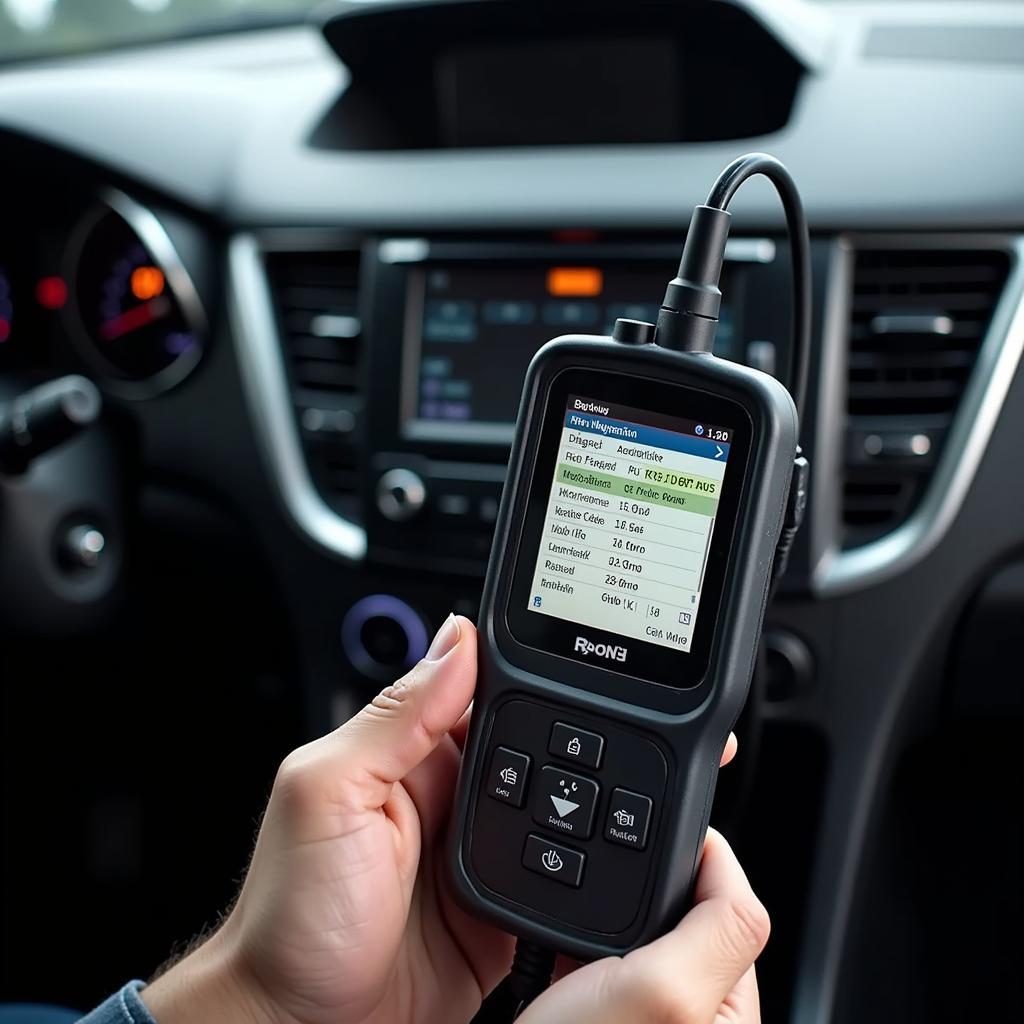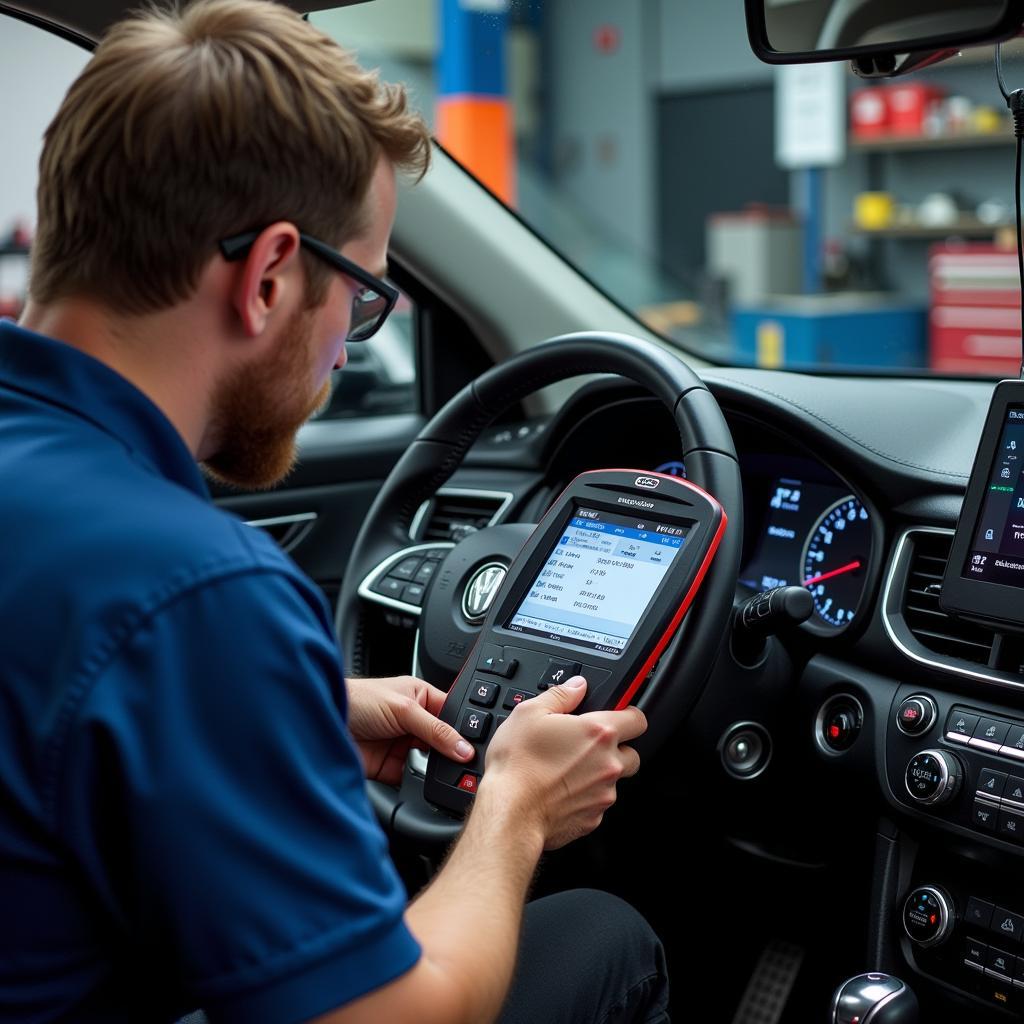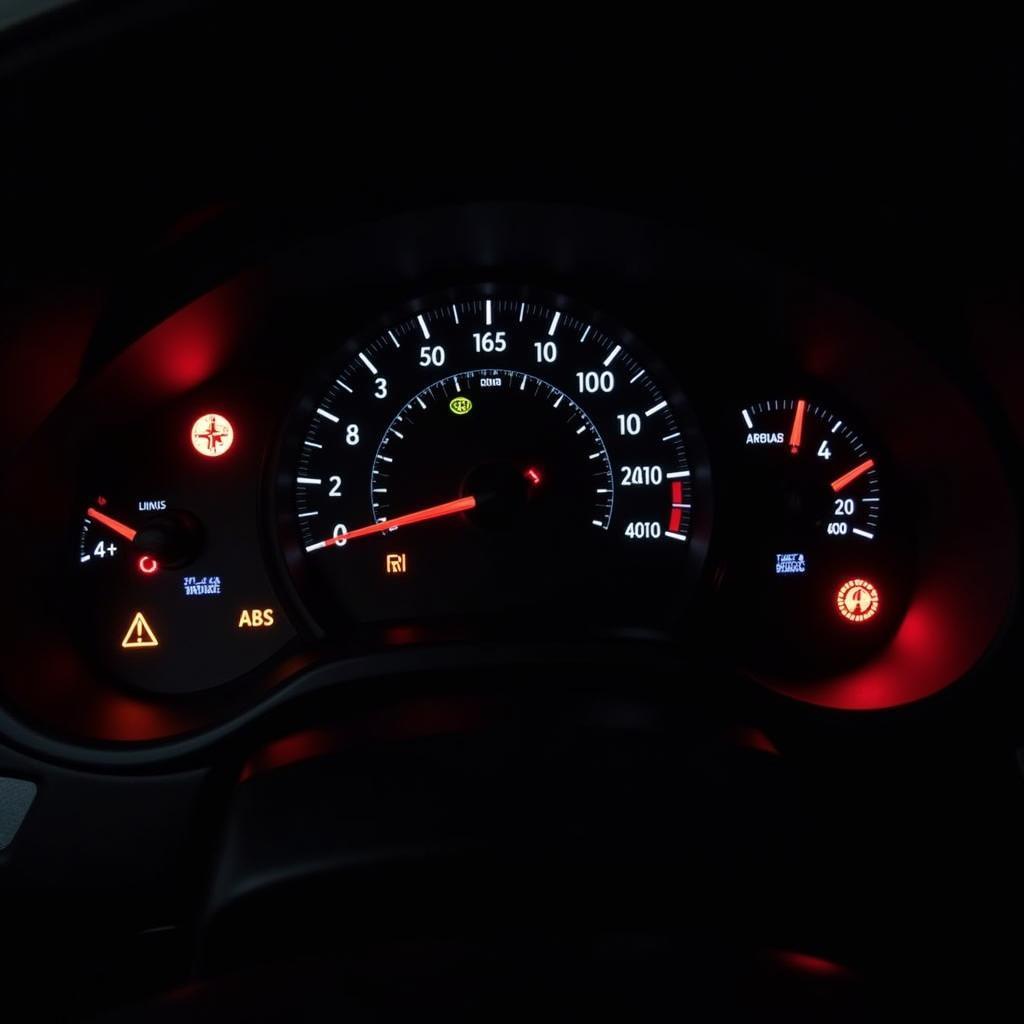A Diagnostic Test On A Car is essential for maintaining its health and identifying potential problems early on. In today’s complex vehicles, a simple visual inspection isn’t enough. This comprehensive guide will explore the importance of diagnostic tests, what they entail, the associated costs, and how they can save you time and money in the long run.
Understanding the Importance of a Diagnostic Test on a Car
Diagnostic tests use specialized equipment to communicate with your car’s computer system, retrieving valuable data about its performance. This data pinpoints issues affecting various systems, from the engine and transmission to the brakes and airbags. Early detection through a diagnostic test can prevent minor issues from escalating into major, costly repairs. Think of it as a health check-up for your car, ensuring everything runs smoothly and efficiently. Having a diagnostic test performed regularly can significantly extend the life of your vehicle. You can learn more about the basics at diagnostic test car meaning.
A diagnostic test can also be crucial when purchasing a used car. It provides an objective assessment of the vehicle’s condition, revealing hidden problems that might not be apparent during a test drive. This knowledge empowers you to negotiate a fair price or avoid purchasing a car with potentially expensive underlying issues.
 Car Diagnostic Test Equipment Connected to OBD-II Port
Car Diagnostic Test Equipment Connected to OBD-II Port
What Does a Diagnostic Test on a Car Involve?
The process typically involves connecting a scan tool to your car’s OBD-II (On-Board Diagnostics) port. This port, usually located under the dashboard, allows the scan tool to communicate with the car’s computer. The scan tool retrieves diagnostic trouble codes (DTCs), which are codes that correspond to specific problems within the vehicle’s systems. A qualified technician interprets these codes to identify the root cause of the issue.
Modern diagnostic tests go beyond simply retrieving DTCs. They can access real-time data from various sensors, providing a comprehensive overview of the car’s performance. This information can be invaluable in diagnosing intermittent problems that might not trigger a DTC. For those in the UK, understanding the cost is crucial, so check out our guide on the cost of a diagnostic test on a car uk.
Why Should I Get a Diagnostic Test on My Car?
Several scenarios warrant a diagnostic test:
- Warning lights on the dashboard: The check engine light, ABS light, or other warning lights indicate a potential problem.
- Unusual noises or vibrations: These could be signs of a mechanical issue.
- Performance problems: Reduced fuel efficiency, rough idling, or difficulty starting could signal underlying problems.
- Before a long trip: A diagnostic test can identify potential issues before they cause problems on the road.
- When buying a used car: This helps assess the car’s overall condition and identify hidden problems. Knowing the average cost for a car diagnostic test is beneficial in this situation.
 Mechanic Performing a Car Diagnostic Test with Scan Tool
Mechanic Performing a Car Diagnostic Test with Scan Tool
The Cost of a Diagnostic Test
The cost of a diagnostic test on a car can vary depending on the location, the complexity of the test, and the shop performing the service. It’s crucial to understand what a diagnostic test entails. Learn more at what is a diagnostic test on car. While it might seem like an added expense, a diagnostic test can ultimately save you money by preventing costly repairs down the line.
“Regular diagnostic tests are a proactive approach to car maintenance,” says John Smith, ASE Certified Master Technician. “They help identify problems early, preventing minor issues from becoming major headaches.”
 Car Dashboard Warning Lights Illuminated
Car Dashboard Warning Lights Illuminated
Conclusion
A diagnostic test on a car is an essential part of modern vehicle maintenance. It provides valuable insights into the health of your car, allowing you to address potential problems before they become major, costly repairs. By understanding the importance of diagnostic tests and what they entail, you can make informed decisions about your car’s maintenance and ensure its longevity.
FAQ
- What is a car diagnostic test? A diagnostic test uses a scan tool to communicate with your car’s computer, retrieving data to identify potential issues.
- How often should I get a diagnostic test? Consider getting one annually or when experiencing unusual car behavior.
- Can I perform a diagnostic test myself? Yes, with an OBD-II scanner, but interpreting the results requires expertise.
- What is the OBD-II port? It’s the connection point for the diagnostic scan tool, usually located under the dashboard.
- What are DTCs? Diagnostic Trouble Codes indicate specific problems within the vehicle’s systems.
- How much does a diagnostic test cost? Prices vary, but it’s a worthwhile investment compared to potential major repairs.
- What if the diagnostic test doesn’t find anything? It provides peace of mind and confirms your car is in good working order.
Common Diagnostic Test Scenarios
- Check Engine Light: This is the most common reason for a diagnostic test.
- Transmission Problems: Slipping gears or rough shifting require a diagnostic test.
- Brake Issues: ABS light activation or spongy brakes necessitate a diagnostic test.
- Airbag System Malfunctions: The airbag warning light requires immediate attention and a diagnostic test.
Further Reading and Questions
For more information, explore related articles on our website about specific car problems and their solutions. If you have further questions, don’t hesitate to contact us.
Need assistance? Contact us via WhatsApp: +1(641)206-8880, or Email: [email protected]. Our customer support team is available 24/7.

Leave a Reply